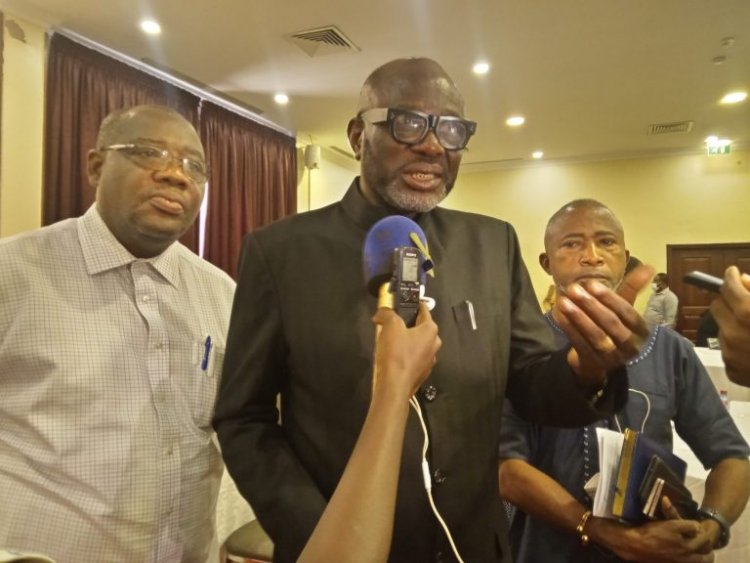The Deputy Commission of the Customs Division of the Ghana Revenue (GRA), Mr. Adu Twum, has disclosed that about 90% of invoices presented by importers are fake, hence the introduction of the benchmark value policy.
According to him, the policy was to help the government generate the right revenue from the importers who otherwise wanted to cheat the system.
On the issue of agencies coming back to the port, Mr. Twum hints that inspection agencies that have been barred from operating at ports are gradually returning despite Vice President Mahamadu Bawumia’s directive.
He indicated although the government reduced the 16 inspection agencies to two to work along with Customs for efficiency and to enable the fast clearing of goods, the policy is being stampeded for lack of understanding between the agencies.
He added that Customs has no power to prevent another agency of government from accessing the port.
Mr. Twum was speaking in an interview with journalists after a forum organized for senior journalists on Port relations by the Importers and Exporters Association of Ghana in Accra.
For his part, the Ghana Union of Traders Association (GUTA) stated that the 30 percent discount on import value policy by the government to take Usain Bolt's effect on goods and commodities in the coming days.
President of the Union, Dr. Joseph Obeng explained that prices of goods and commodities will skyrocket because the 50% discount on import value has been reduced to 30%.
The GUTA president stated that the policy is not a reduction in import duties
“There has been a reduction in the 50% on import value but people have misconstrued it as import duties being reduced. No! On the contrary import duties are going to go up but not as they would have been when the whole 50% would have been reversed.
“So 30% is a reasonable discount for the trading community. So we want to let the general public know.”
He explained that under the status quo if goods imported into the country are valued at US$100,000, the government would discount it at 50%, and what it means is that the importer would be paying duties on the US$50,000.
But under the new regime, he said the government will take care of 30% of the $100,000, which will bring the amount that the importer must pay duties on to $700,000.
He, therefore, urged the public to have an understanding of these dynamics in order not to blame them for the price hikes in goods and commodities.
Mr. Obeng added that a 30% concession was arrived at after several engagements between the government and the business community.
“It was good news to the business community because not all of the 50% was taken off but reduced to 30%. That is why we thank the government for listening to our plea for the implementation of the reversal policy. They engaged us and we also understand the fact that government needs more resources to develop our country and we have also been given some concessions. So it is a win-win situation. In this AGI is also compensated in a way. What we are seeking we have gotten some.”
Per the agreement, vehicle importers will enjoy a 10% reduction as against those into other goods, 30%.
The GUTA president also encouraged members of the Association to take advantage of Section 67 of the Customs Act (Act 891), which enables bulk cargo importers to have some discounts up to 12% – 20 containers attract 5% discounts, 20-40 containers, 10% discount, and above 40 containers, 12% discount.
He emphasized that the containers must come in at a goal and not in parts and pieces, “so I will indulge the general public, especially those who bring in bulk containers to take advantage of this, and try also to seek the necessary information for us also to benefit, otherwise the few people who know of this, will take the advantage and it would be seen as customs is favoring some individuals.”


 Freeman Koryekpor Awlesu Greater
Freeman Koryekpor Awlesu Greater 


































